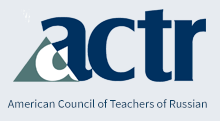Russian Language Journal
Keywords
Russian language teaching, language learning tools
Abstract
The Visualizing Russian (Clancy, 2014–2022) project offers a suite of tools benefiting language learners, teachers, and linguists and enabling each of these user groups to access the complex system of the Russian language through visualization methods in order to leverage the powers of compression and expansion of a massive data set. Users can analyze texts for relative difficulty with regard to vocabulary content with Visible Vocabulary, create frequency lists and identify the most commonly used word forms for each lemma in a text or compare sets of target vocabulary to covered forms in a particular text with the Mini-Story Creator, compare the relative frequency of near-synonyms or other items in a semantic domain with the Quick Lemma tool, view the usage frequency of various nouns in particular cases with the Case Distribution tool, and identify the case governance and preposition usage of Russian verbs in the Verb Histogram tool. Additional components provide word-formation analysis by breaking down words into component prefixes-roots-suffixes, gauge imperfective/perfective aspect usage for individual verb pairs, visualize verb forms across various person/number/tense/aspect combinations, and identify the field of morphologically related or semantically related words for any target word.
Recommended Citation
Clancy, S. J., & Lee, P. (2022). Visualizing Russian: Illuminating Corpora, Conjugations, and Classrooms. Russian Language Journal, 72(1). https://doi.org/10.70163/0036-0252.1281


